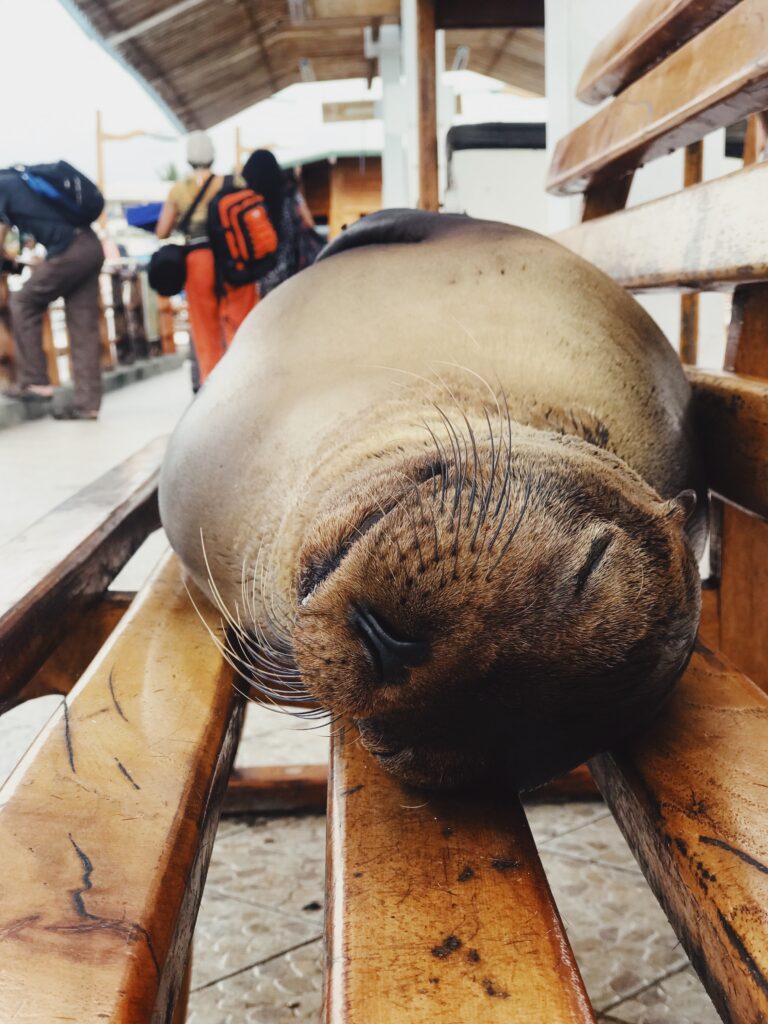An acute stress disorder occurs immediately after a dramatic event and typical symptoms are intense anger, frustration and sadness. The events can trigger feelings of intense fear, helplessness, fear or disgust. These are normal reactions of trauma. Symptoms such as increased stress levels and increased alertness can change both sleep and circadian rhythm.
In a short time, the symptoms may have disappeared by themselves, be ongoing or experienced as more intense. In the latter two cases, PTSD may be a topical diagnosis.
Two out of three PTSD patients have significant sleep disorders.
Who suffers from stress disorders?
In the general population, between 5-20% will develop PTSD after a traumatic event. In the United States, about 3.5% of the population over the age of 18 have PTSD at any given time. Sleep disorders are one of several symptoms. It has also been shown that patients with sleep disorders before a traumatic event are more likely to develop a mental illness after the event.
Why does PTSD inflict sleep disorder
Sleep disorders are core symptoms both in the acute reaction phase and in the reaction phase that can persist over time. Fear can be specifically related to darkness, to falling asleep, to bad dreams and nightmares, or to waking up alone at night. Intrusive thoughts about a traumatic event can occur at any time but are most relevant when you are inactive and impressions from the environment are reduced – such as when you go to sleep.
Types of sleep disorder
Too little and poor sleep contributes to impaired functioning during the day, which can aggravate other mental symptoms.
Types of sleep disorders that are often reported after trauma are insomnia and repeated nightmares associated with hyperactivation. Being constantly on the lookout for potential dangers increases sensory impressions and the slightest sound during sleep can lead to awakening.
Studies have shown that more than 85% of people with war experience and who have PTSD suffer from insomnia.
Treatment approaches
There are various treatment methods that can be used. A good overview of the patient’s sleep and waking activities such as time in bed, time in the waking state, total sleep time, daytime fatigue, naps during the day, shift work, bedtime routines and sleep-related thoughts and feelings can give the measures goals and direction.
Cognitive behavioral therapy
The use of exposure and anxiety-reducing techniques aimed at intrusive memories and avoidance behaviors should be sleep-oriented. One technique is “Imagery Rehearsal Therapy” where the focus is on remembering the nightmare. The patient is told to tell the content of the nightmare and the therapist helps to construct alternative outcomes or that the nightmare has a more positive ending than just fear and apprehension.
Drugs
that reduce the activity of the neurotransmitter system noradrenaline in traumatized patients can have a good effect in PTSD-related nightmares, awakening and attention.
This was investigated by Matthew Walker, a psychology researcher at the University of California, Berkeley. His particular interest lies in rapid eye movement, or REM. It’s the time during sleep when a lot of dreaming occurs.
It’s also a time when the chemistry of the brain actually changes. Levels of norepinephrine – a kind of adrenaline – drop out completely. REM sleep is the only time of day when this happens. That struck Walker as a mystery. He asked the questions:
Why would rapid eye movement sleep suppress this neurochemical? Is there any function to that? “
Walker found that in healthy people, REM sleep is kind of like therapy. It’s an adrenaline-free environment where the brain can process its memories while sort of stripping off their sharp, emotional edges. “You come back the next day, and it does not trigger that same visceral reaction that you had at the time of learning.”
Emotions are useful. They show us what really matters to us. “But I do not think it’s adaptive to hold onto that emotional blanket around those memories forever,” Walker says. “They’ve done their job at the time of learning, then it’s time to hold on to the information of that memory but let go of the emotion.”
Walker’s theory suggests that in people with PTSD, REM sleep is broken. The adrenaline does not go away like it’s supposed to. The brain can not process tough memories, so it just cycles through them, again and again.
A blood pressure medication, prazosin from Pfizer Inc. called Minipress, was accidentally used on a veteran. The medicine was not a success as a blood pressure medicine, but it turned out to make people less sensitive to adrenaline. This may be a possible way to cure nightmares in PTSD sufferers.
Antidepressant
Antidepressants can reduce PTSD symptoms, increase stress management, quality of life, restore social functioning and improve depression. In general, antidepressants reduce the amount of REM sleep, the stage of sleep in which nightmares occur and reduce the number of awakenings, but are not usually recommended for the treatment of nightmares. Medications should generally be a minor part of treatment.
Traumas can occur in disguise. Patients can seek health care for physical symptoms other than the mental symptoms. Therapists must dare to ask questions about suspected trauma, as well as be prepared to deal with what is revealed.
How to Sleep Better With PTSD
Establishing routines for better sleep hygiene is often the way to go when one is struggling with sleep.
- Make sure your sleep environment is a cool, dark, and in a quiet place
- Have a regular routine for bedtime and awakening.
- Do not overeat at night, and make sure you do not drink caffeine (or alcohol) before bedtime
- Eat healthy.
- Exercise. Research tells us that you do not necessary sleep better when exercising, but you exercise clearly benefits from sleeping. That being said, exercise is never bad for you. Just do not do it too late at night.
- Avoiding stressors before bedtime, including talking about your traumatic event
- Do not overuse your PC, Mobile and things that gives you arousal or blue light.
- Having a warm bath or reading a calming book before bedtime. This is not because you should be warm when you go to bed. Quite the opposite. A warm bath will cool you down because the warm water will make the body temperature inside fall. And that is important for sleep. Our body lower the core temperature one degree before sleep.
- Using a white noise machine if you are sensitive to sounds
If you have been in bed for 20 minutes and you cannot fall asleep, get out of bed, go to another room to do something relaxing, and only return to bed when you feel sleepy. This will help strengthen the mental association between your bed and sleep.
I highly recommend the book Why We Sleep by Matthew Walker. A book that helped me a lot to understand both how important sleep was and how I could adapt my own everyday life to improve my sleep hygiene. (I do not have any affiliate revenue recommending this book.)

What is a lifetime, really?
Twenty good years? A good friend of mine once said while walking in the mountains of Gran Canaria.“Knut, we have twenty good years left. Use

How to protect yourself from your PTSD, when the world is on fire
(It is war. And it is mine. ) The headlines that meet me today are about the war in Ukraine. Alarms going off, people fleeing,

The thin film of civilization
The thin film of civilization This picture are taken on Lesvos. Her husband and baby drowned on the way over from Turkey. This is a
